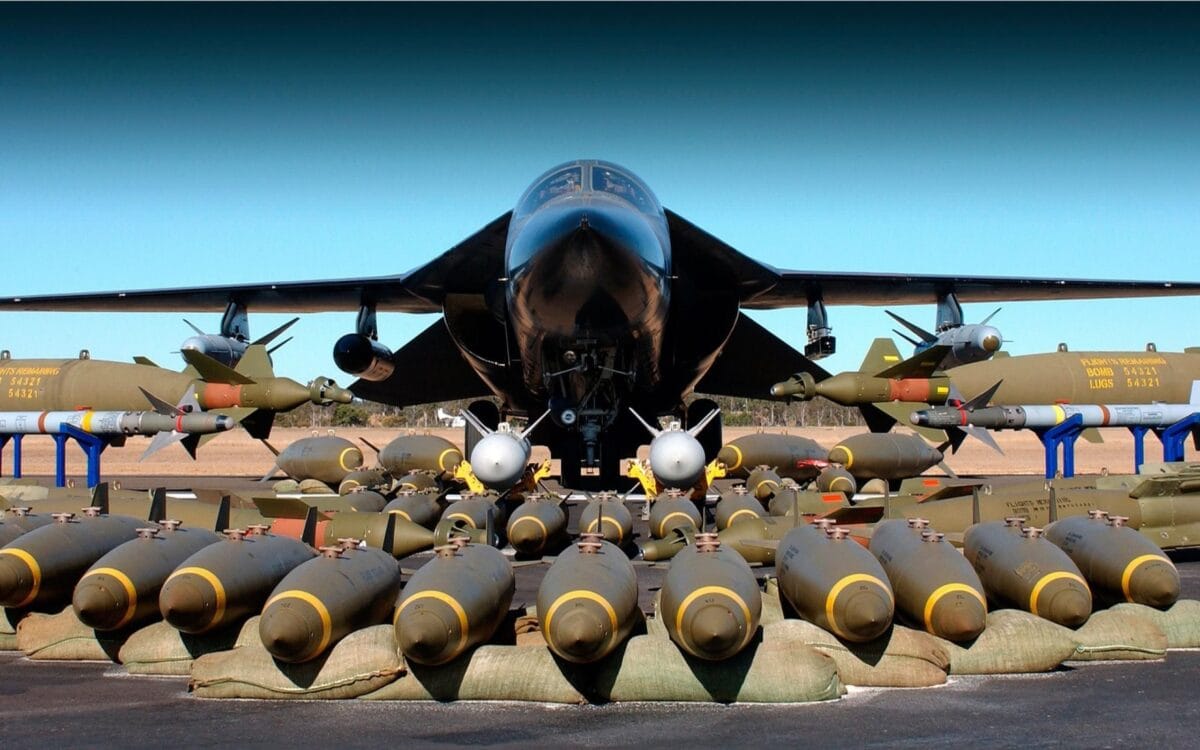The General Dynamics F-111 Aardvark Was a True Multirole Combat Aircraft – Developed to meet a bold United States Department of Defense (DoD) edict that called for a multi-role aircraft that could meet all future tactical needs of all U.S. military services, the General Dynamics F-111 Aardvark proved to be a major success, albeit with a rocky start. Production variants of the F-111 had it serve in roles that included ground attack/interdiction; strategic bombing, with nuclear weapons; reconnaissance; and electronic warfare. It was a long-range, all-weather strike aircraft that was capable of navigating at low levels to destroy targets deep in enemy territory.
Multi-role Aircraft
It was truly a cutting-edge multi-role aircraft, including being the first production variable-geometry wing aircraft as well as to feature terrain-following radar for low-level, high-speed flight.
It also pioneered the use of after-burning turbofan engines.
The F-111 Aardvark had been originally conceived in early 1960 to combine the United States requirement for a fighter-bomber with United States Navy’s need for an air-superiority fighter. While the Navy subsequently canceled its program, the Air Force forged ahead.
The F-111 was a major step forward, but it required a new engine, wings and radar to enable it to complete its mission of dropping 8,000 pounds of bombs on a target 1,500 miles away – without refueling.
It was the first aircraft to utilize an afterburning turbofan engine, which provided it the power to fly supersonically to Europe without tankers. The F-111 set a record for the longest low-level supersonic flight (172 miles at less than 1,000 feet altitude) on November 9, 1966.
The F-111 as A Bomber
The F-111 entered service with the U.S. Air Force in 1967, and it was primarily employed as a bomber.
Yet, it could fly like no other bomber of the era – low to the ground to avoid detection until the bombs were delivered, but then up to altitude at supersonic speed to make its return flight home.
It featured a swept wing – one that could be changed in flight – and could vary between sixteen and 72.5 degrees, with side-by-side seating for a pilot and weapons systems officer.
The F-111’s wings were straight for take-offs, landings, or slow-speed flight; but by sweeping its wings rearward, it could exceed twice the speed of sound (Mach 2).
The advanced avionics allowed for night/all-weather flight close to the ground. The aircraft’s radar system could enable the F-111 to fly at just 200 feet off the ground in changing terrain without pilot intervention. The system allowed the pilot to shift the aircraft while radar-controlled the altitude.
The avionics also helped locate and bomb targets at night and in bad weather, while the F-111 was also able to take off and land on runways as short as 3,000 feet.
During the Vietnam War, the Aardvark offered twice the range of the F-4 Phantom yet could carry two and a half times the weapons load.
Improved Version
The F-111F variant was also equipped with an all-weather AN/AVQ-26 Pave Tack infrared targeting designator/reader carried in a pod-mounted turret under the fuselage.
The aircraft could track and designate ground targets for laser, infrared and electro-optical bombs.
Eighteen aircraft were employed, along with four EF-111A Raven electronic warfare variants, during the April 14, 1986, “ Operation El Dorado Canyon” airstrikes on Libya. Taking off from Royal Air Force Lakenheath and Royal Air Force Upper Heyford in the United Kingdom and flying round-trip to Libya – a distance of 6,400 miles and spanning 13 hours – it was the longest fighter combat mission in history.

F-111. Image Credit: Lockheed Martin.
The F-111s faced a 3,500-mile flight with four aerial refuelings each way due to flight restrictions. As the aircraft approached Libya, two U.S. Navy aircraft carriers, the USS Coral Sea (CV-43) and the USS America (CV-66), launched fourteen A-6E strike aircraft and twelve F/A-18 and A-7 strike support aircraft. Although the mission was deemed a success, it was not without controversy. The U.S. Navy later claimed that the entire operation could have been accomplished using Navy assets. In addition, one F-111 was lost over Libya and crashed into the Mediterranean Sea.
Just five years later, the F-111F proved to be one of the most effective Allied aircraft in Operation Desert Storm in 1991, where it flew more than 2,400 sorties against Iraqi strategic sites, vehicle formations and hardened bunkers.
In total, 566 F-111s of all series were built; 106 of them were production F-111Fs. The United States Air Force retired the last F-111F in 1996 when it was replaced by the F-15E Strike Eagle for medium-range precision strike missions, while the supersonic bomber role was assumed by the B-1B Lancer.





